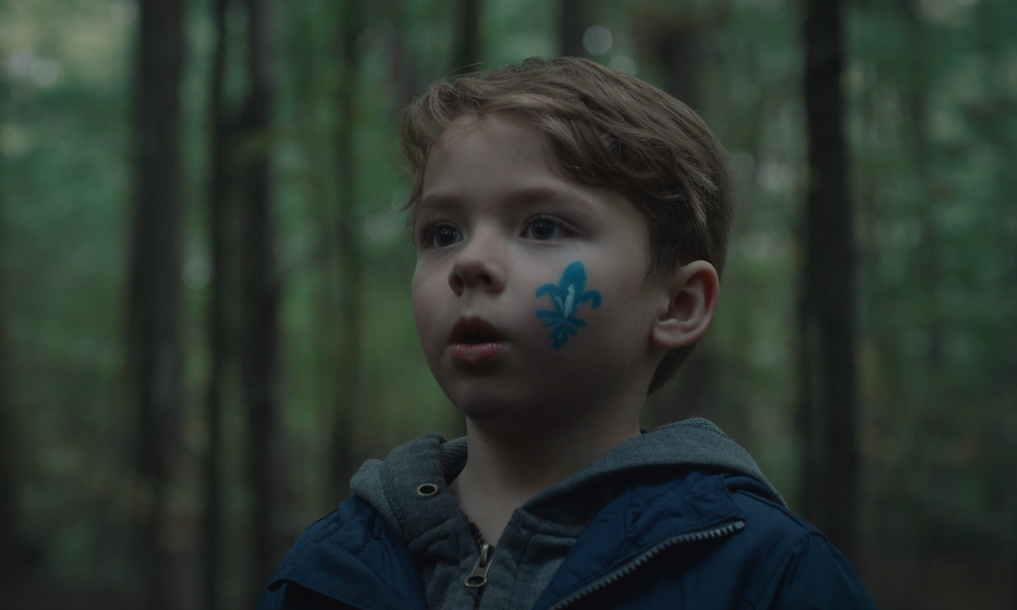Pier-Philippe Chevigny’s new acclaimed short, REBEL looks at the cause and effect of immigration on the US/Canadian border and its’ effect on a young boy who is tagging along for the ride when his father helps a group of like-minded hunters track illicit individuals in the territory.
TRAILER:
PROMO VIDEO:
Film And TV Now recently spoke with the director about the film and the background and context of its’ creation.
FILM AND TV NOW: The film shows a flip-side to the immigration issue in America, with people flooding into Canada rather than the other way around. What was the start-off point for the short?
PIER-PHILIPPE CHEVIGNY: I was interested in the recent rise of right-wing extremism in Quebec, which is the French part of Canada. Historically, Quebec has always been a very left-leaning province: in fact, it still is to this day the most left-wing state in North America.
But for a few years now, we’ve seen a pretty constant drift towards the right, and we’ve also seen the arrival of multiple right-wing militia groups (like La Meute, Storm Alliance, Soldiers of Odin).
That whole phenomenon had been on the rise for nearly a decade now, but it exploded in 2017 when the US suspended the TPS (Temporary Protected Status) for migrants, which allowed them to live and work in the States while waiting for their refugee status to be confirmed.
That created a migrant surge and from 2017 to 2020, an estimated 40,000 people fled the US to avoid deportation and crossed the border “illegally” into Quebec, literally by walking across.
That, in turn, has ignited the fires of extremism, and these groups started becoming really active, doing patrols in multicultural neighborhoods, holding demonstrations in cities and at the border.
I was researching the topic when, the following day of a big demonstration in Quebec City, I saw an article by local newspaper La Presse that had the photo of a young boy holding a flag with La Meute’s logo on it. I thought to myself: “that kid doesn’t understand what the politics are behind all of this, he is just following his parents”. I thought that would be an interesting starting point to tell a story.
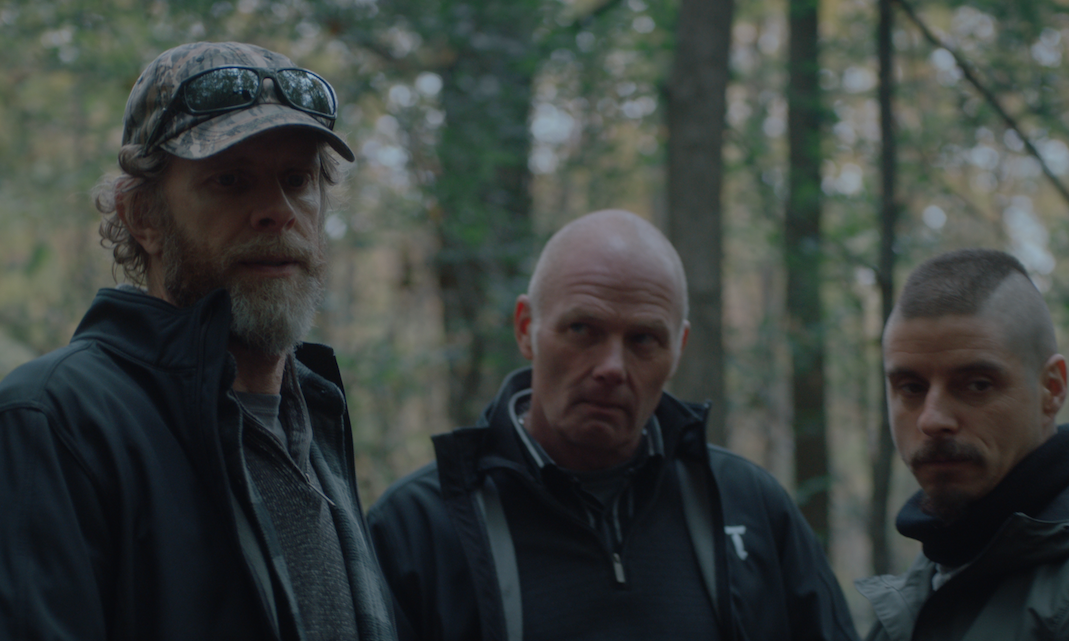
FTVN: What’s interesting is that the child develops a very strong moral code based on what he witnesses in the woods. Did you meet with many children of parents who are involved with the sort of group that this film reflects?
PPC: My research was mostly based around social media: I did try to reach out to these groups, but I didn’t want to pretend I agreed with them. That posed a significant ethical issue to me, and I was transparent about my intentions when I reached out, and of course, they turned me down. So I didn’t actually meet with any of them. Instead, I followed about two dozen of its most active members and I began recording everything they published.
And one of the things that felt absurd to me was the fact that they would take their children to those demonstrations. Clearly, these kids weren’t asked for their opinion, and most likely were they told it’s “the right thing to do”. So there is definitely a level of indoctrination involved.
FTVN: Tell us about your cast.
PPC: Of course, casting the boy was the hardest. The thing about child actors is that you know right away whether they actually enjoy acting or if they’re just being coerced into it by their parents!
We saw over 40 boys and you could tell the vast majority of them didn’t really want to be there. Edouard, on the other hand, was super enthusiastic. He was genuinely enjoying himself and you could tell he would be a hard worker. So even though he had no experience whatsoever, I knew that I could work with him, especially since I shoot mostly in long takes, which requires several takes to get it right.
As for Emile, Sasha, and Jean-Nicolas, they are all wonderful actors who tend to play “good guys” on screen. It was important to me that, in portraying right-wing extremism, we avoided casting obvious “bad guys”. When doing the research, I realized a lot of the people involved in those militia groups weren’t who you’d expect: they weren’t neo-Nazi skinheads!
In fact, most of them were regular everyday normal people… Soccer moms, uncles, and aunts… and that makes it much more worrying to me! Nothing is surprising about seeing neo-Nazis march against immigration, but when everyday normal people get sucked into these theories, that’s when you know that something is wrong.
FTVN:Tell us about your production team.
FTVN: My producer Geneviève Gosselin-G. also happens to be my partner in life. She has produced every single one of my projects ever since college and she is every bit as important to the creative process as I am.
When we contemplating ideas for a film about right-wing extremism, the idea for REBEL wasn’t my favorite… I didn’t think we could finance it. But she was convinced that it was the best one out of my other possibilities, and she pushed for it…
Turns out she was right: REBEL is by far the most successful film I’ve ever made, and I wouldn’t be here without Geneviève!
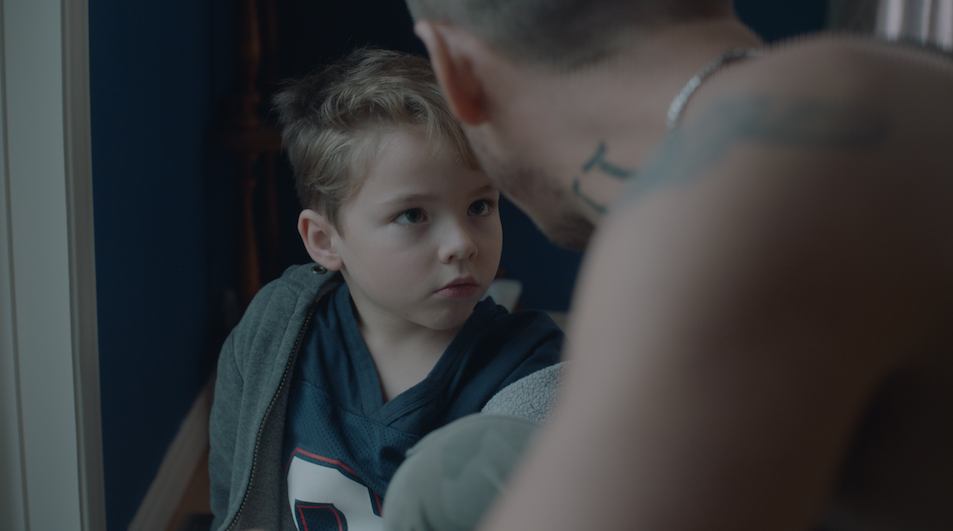
FTVN: Where did you shoot and for how long?
PPC: We shot for four days, all in Montreal. The house was shot in a day in the far east part of the city, and then the woods was shot in three days in a regional park on the far west side of the island.
FTVN: How did you raise finance?
PPC: In Quebec, we’re extremely lucky to have these very generous filmmaking grants which allow us to make short films in the best conditions possible. The film was 100% public-funded, with money from SODEC, Conseil des arts et des Lettres, and the National Film Board of Canada.
When I spoke about how left-leaning Quebec is, that’s what I was talking about! We pay more taxes than our neighbors, but in turn, we have these amazing social program which provides better support for arts and culture than any state in North America. It’s most likely the reason why a nation of barely a few million individuals manages to consistently make several films a year that compete at the very top level on the international festivals market.
FTVN: Given the chance in leadership in the White House as we speak, how do you feel Biden will deal with the immigration issue in his first term of office?
PPC: Of course, when I wrote the script back in 2017, I couldn’t have anticipated COVID and the turn of events we are witnessing right now. I don’t know what Biden’s stance will be, from seeing the people he’s naming around him so far, I get the feeling he’s setting up for status quo.
What I know for sure is that, even though Americans have gotten rid of Trump for the next four years, Trumpism is not going anywhere. I think those wounds will take a lot of time to heal, and we’re going to have to deal with the existence of right-wing extremism for the foreseeable future.
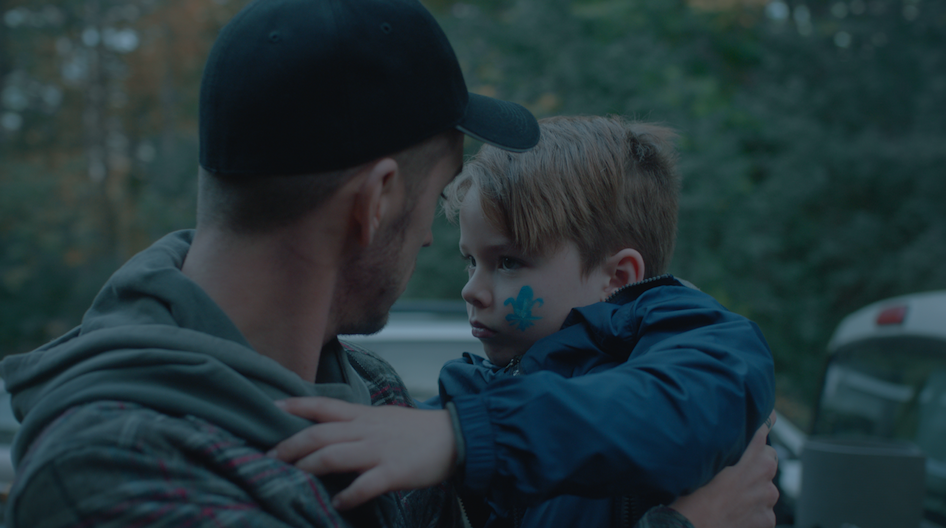
FTVN:You are based in Montreal, a film-making community which people like David Cronenberg have used in their own work. What are the strengths and weaknesses of filming in a city like Montreal?
PPC: It’s a great place to make movies, at least if I compare to our direct neighbors. Quebec has amazing financing programs: you can raise way more money here than anywhere else in Canada, but of course, you can’t compete with Hollywood money either. On the other hand, Hollywood is run by genre and commercial viability, so even though you can get more money over there, I think it’s probably easier to fund an auteur/arthouse film here.
Montreal has some catching up to do in terms of representation. For the longest time, filmmaking was a white man’s game here, but thankfully it’s starting to change. By imposing quotas on gender, our funding agencies have managed to balance the scales: for the past few years, film production has been very close to achieving gender equality. Now the next step is making sure that cultural minorities also get their share of the pie.
FTVN: You are very interested in socio-political subjects in your work with a common cinematic signature. What issues and themes are you keen to explore in your future work?
PPC: Social justice and Immigration are dear to me, because deep down it’s always about human empathy, and these stories move me as an individual. I’m also working a lot on LGBTQ+ rights at the moment for a feature film project that I’m about to start writing.
FTVN: You are set to direct your debut feature RICHELIEU in 2021. Tell us about this project and what has the development process been like?
PPC: RICHELIEU is about the temporary foreign workers’ program that we have here in Canada, which allows employers in specific fields to hire workforce from abroad.
Every year around 30 000 men, mostly from Guatemala and Mexico, come to Canada to work in the agricultural industry. For years, this program has been hit with allegations of exploitation and abuse, yet Quebecers don’t like talking about it because the industry actually depends on it: nobody wants to work in farms anymore, it’s too hard and pays too little.
Without foreign workers, the industry would literally collapse. So it’s a big ethical problem and I’ve written a script about that. It’s told from the perspective of a half-Quebecers, half-Mexican female translator who works with Guatemalan workers in a tin-can factory.
She witnesses the type of abuse they go through, and little by little, she starts taking their defense. It’s inspired by an actual real-life case, and took close to 10 years of development, and was written in close collaboration with the people involved in the case.
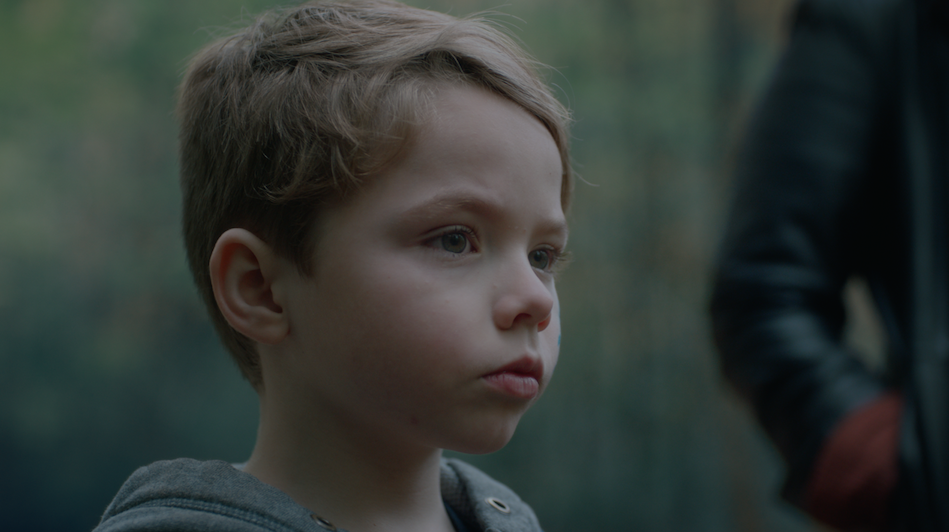
FTVN: How has COVID-19 affected your development and evolution as a film-maker?
PPC: I don’t really know yet. If it weren’t for COVID, we might have shot RICHELIEU this year. But since it forced us to stop, we took the opportunity to develop the project further.
In the meantime, the project was selected at the TIFF Filmmaker Lab, and at Los Cabos’s coproduction market. We’re actually about to turn the project into a co-production, so it ended up being a very productive year.
We’ll see what happens, but I remain optimistic. I hope the vaccine will make it easier for us to start shooting again.
FTVN: Finally, what are you most proud of about REBEL?
PPC: Its success is beyond my expectation. To have that many sales, selections, and awards with a film that’s about a very heavy but important subject, that’s not exactly a crowd-pleaser, feels very rewarding.
I’m especially glad of the attention it’s been getting since we won the Oscar-qualifying award at Tirana because it puts the spotlight on the problem of right-wing extremism and the migrant crisis, which is really the reason I make films.
I don’t believe films (and especially shorts) have the power to change society, but I sure hope they can foster debates, and that’s what I’m seeing happen with REBEL. So that’s mission accomplished.


